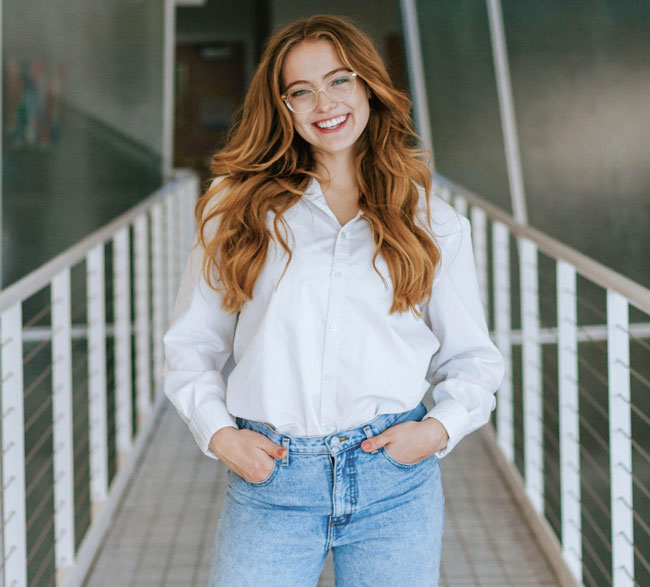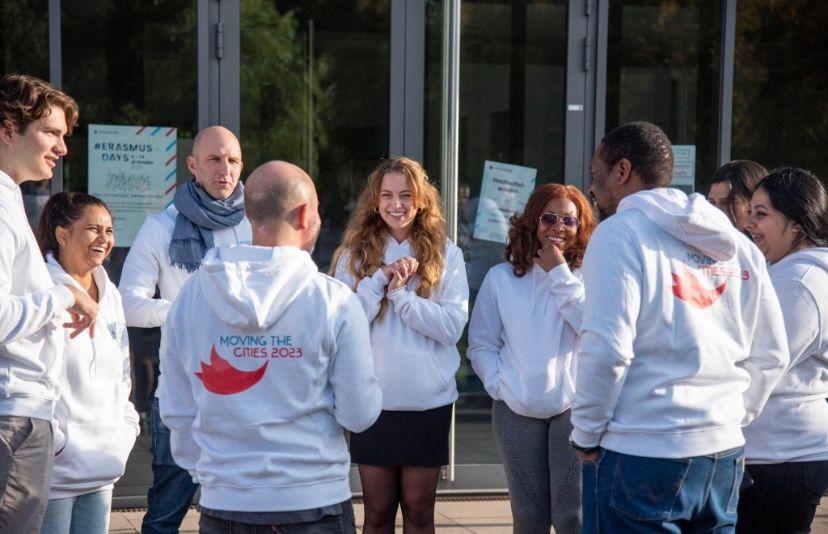"My passion for the outdoors led me to where I am, and what I’m pursuing now,” Forster says.
In October, 2023, her studies also led her to the fifth annual Moving the Cities gathering, an immersive international experience held in Münster, Germany that asks students to think about technology, science, entrepreneurship, innovation, and society.
Forster was awarded a scholarship by the University of Minnesota’s Institute on the Environment (IonE), and selected to join 63 other students from around the world last October.
"We were thrown into a completely new, fast-paced environment with 64 new faces,” said Forster. “And I think that's the point; to get all of the students out of their comfort zone."
Participating students were divided into teams and challenged to dream up solutions to issues of regional sustainability.

"We focused on a meaningful solution to a regional problem: how to improve rural internet access in Bolivia,” said Forster. “Our solution involved using a mobile hub.”
Once Forster’s group designed a solution, they created a business plan, prepared a pitch, and presented their solution to a panel of judges.
“The real challenge wasn’t actually pitching, it was learning how to interact with people from different cultures."
“Having so many different perspectives from all around the world in our group was really helpful in the problem solving process,” said Forster. “I also got to create my own global partnerships while I was there.” Violet said. “I'll be forever grateful for that experience.”
Forster has collaborated on sustainability projects at UMD including founding the club which secured UMD’s first apiary (beehive), and has worked with Duluth’s Office of Sustainability tracking past and planning future sustainability efforts.
"I love everything that Duluth has to offer. It's a beautiful place.”
Recently, Forster has a new project.
"I'm creating an ARC GIS story map on the UMD Land Lab… trying to make a tool to get more engagement from students, and to show UMD why it's such a valuable asset."
Violet's map shares the Land Lab’s story using blueprints gathered from Duluth's archives.
"When you look at these blueprints you can see the Land Lab grow. You can see all the different people that worked on it, their ideas, and how it evolved over time."
The map also highlights the Land Lab's community impact through testimonials from students.
"My professors always go out of their way to help me with anything I need. Their willingness to help me with my passion projects outside of class – like my club – is what has really made my experience in Duluth, and at UMD, so great.”
